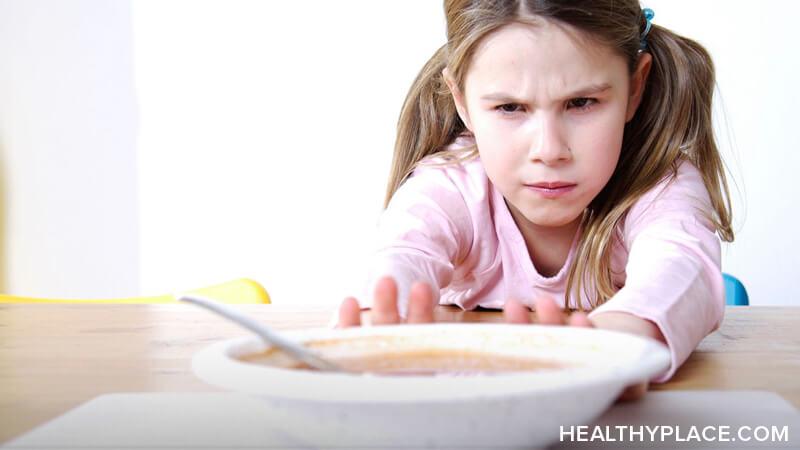The New Weight Loss App for Kids from WW Is a Bad Idea
There's a new Weight Watchers weight loss application (app) for kids called Kurbo. When I first heard about Kurbo I felt a little nauseous. It’s precisely the sort of thing that a young, adolescent me – embroiled in an eating disorder – would have latched onto as a source of “inspiration” to fuel my illness. I was curious as to how Weight Watchers, recently rebranded as WW, would market and defend their new product – and why they thought the app was even remotely a good idea.
WW claim that Kurbo is about more than just weight-loss – it’s designed to help children aged between eight and 17 develop a healthier lifestyle. But while its website doesn’t directly refer to “dieting,” it features “success stories” that show before and after photos of children, documenting how much their weight and body-mass index (BMI) has decreased.
Kids can use the weight loss app to track what they eat and how much exercise they do, while regularly checking in with a health coach. Kurbo categorizes foods into “traffic-light colors,” making it easier for children to look them up and add them to their daily record. “Green” foods are “healthy” items, which can be consumed in abundance, including fresh vegetables, fruits, and lean protein. “Yellow” foods, like grains and low-fat dairy products, should be eaten in moderation. “Red” represents fatty or “unhealthy” foods, like sweets and full-fat dairy products, which should be eaten sparingly. Though, healthy and essential fats like nuts, avocados, and olive oil are also included in the latter category.
Why a Weight Loss App for Children Is Problematic
You might say that given the obesity problem in both the UK and the US, a weight loss app for kids could be beneficial, tackling weight-related issues like diabetes and heart disease. But is an app that labels certain foods as “bad” and “off-limits” really our best solution for these problems?
According to WW, the traffic-light system is a scientific approach to reducing obesity, which was born out of a program developed by Stanford University. What WW fails to shed light on, though, is that weight-loss programs, like Kurbo, have been shown to significantly contribute to body dissatisfaction, which in turn is a prominent predictor of disordered eating. A recent study found that even people who used “healthy eating” apps were more likely to experience depression or negative emotions like guilt and obsession.1
Those who are in favor of a weight loss app for kids might argue that it encourages children to be conscious of what they eat and that some kids need support in adopting better habits for themselves. But should we be teaching children as young as eight – whose brains are still developing and largely influenced by their environments – that the best way to be healthy is to obsess over everything on their plates and how much they weigh?
Research affirms that villainizing certain foods, counting calories, and frequently weighing yourself isn’t conducive to positive mental health but, rather, these are precisely the sorts of behaviors that exacerbated my dysfunctional and dangerous relationship with food while I was growing up. A more useful approach might be to focus on developing a balanced and intuitive approach to eating: to listen to one's body’s signals, eat in moderation, and understand that weight is not necessarily an accurate barometer of wellbeing.
Many studies have shown that eating intuitively is associated with positive health outcomes, whereas dieting is a notable risk factor for eating disorders.2 Research carried out by The National Eating Disorders Association highlighted that a preoccupation with “clean eating” can be just as harmful to young people as restricting.3
Problems with This Weight Loss App for Kids from WW
WW overlooks some key differences between Kurbo and the weight loss program devised by Stanford University. The latter employs screening for participation, while WW has no such method to exclude vulnerable users who might be at risk of developing an eating disorder. Although Kurbo warns children under the age of 13 to only use the app alongside a parent, there are no real measures in place to prevent them from lying about their age and accessing the app.
Unlike the original “traffic-light” system, Kurbo isn't carefully monitored by mental health professionals who can instantly hone in on risky behaviors. It, therefore, has the potential to negatively impact children who are susceptible to food-related mental illness – and for that reason alone, a dieting app for kids is deeply concerning.
In a society where eating disorders are still so prevalent, there are better ways to address obesity and promote healthy eating habits than teaching young people to closely monitor their food intake and weight loss from so early on. Dieting may not directly cause eating disorders but there’s enough evidence to indicate that it can act as a precursor to developing the illness. I hope that the silver lining of this weight loss app for kids is that people start investigating alternative approaches, permanently shifting the focus from weight to health.
Sources
- Honary, M., et al., "Understanding the Role of Healthy Eating and Fitness Mobile Apps in the Formation of Maladaptive Eating and Exercise Behaviors in Young People." Journal of Medical Internet Research. June 2019.
- Richardson, M. and Paxton, J., "An Evaluation of a Body Image Intervention Based on Risk Factors for Body Dissatisfaction: A Controlled Study with Adolescent Girls." International Journal of Eating Disorders, April 2009.
- National Eating Disorder Association. Orthorexia. Accessed August 27, 2019.
APA Reference
Redif, Z.
(2019, August 30). The New Weight Loss App for Kids from WW Is a Bad Idea, HealthyPlace. Retrieved
on 2025, December 29 from https://www.healthyplace.com/blogs/survivinged/2019/8/the-new-weight-loss-app-for-kids-from-ww-is-a-bad-idea
